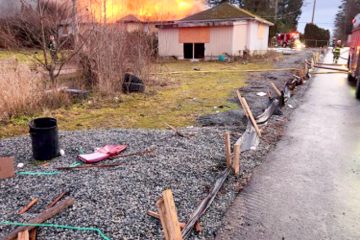Understanding the Impact of Fire Incidents in Canada 2023

Introduction
The incidence of fire has always posed a significant threat to communities across Canada, affecting not only the environment but also public safety and economic stability. In recent months, various regions have faced unprecedented fire outbreaks, largely attributed to climate change and human activities. Understanding these incidents is essential as they continue to have severe implications for Canadians and the nation’s ecological balance.
Recent Fire Incidents
In 2023, Canada has witnessed some of the most devastating fire seasons in its history. According to the Canadian Interagency Forest Fire Centre (CIFFC), over 7,000 fires have burned more than 1.4 million hectares of land just in this year alone. The Western provinces, particularly British Columbia and Alberta, have been hit the hardest. Notable fires include the Upper Nicola Valley fire in British Columbia, which prompted extensive evacuations and destroyed numerous homes and businesses.
As fire crews work tirelessly to combat these blazes, the impact extends beyond immediate firefighting efforts. Regions affected by fire events often face long-term challenges such as air quality deterioration, disrupted local economies, and ecological damage. Many communities have reported increased respiratory issues among residents due to smoke inhalation.
The Role of Climate Change
Climate change has been identified as a crucial factor in the increasing frequency and intensity of wildfires across Canada. Rising temperatures and prolonged periods of drought have created ideal conditions for fires to ignite and spread rapidly. A recent study by Natural Resources Canada indicates that average temperatures in the region have increased by 1.6 degrees Celsius since the late 1940s, contributing significantly to the severity of fire outbreaks.
Conclusion
The rise in fire incidents this year underscores the need for improved fire management strategies and community preparedness. Local governments are urged to invest in fire prevention programs, awareness campaigns, and emergency response plans to protect residents and natural resources. As climate change continues to intensify, Canadians must recognize the importance of adopting sustainable practices to mitigate future fire risks. The journey to a safer environment requires collective effort, resilience, and a commitment to protecting the land we inhabit.









